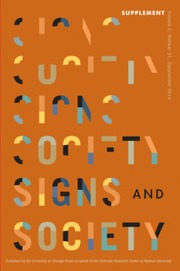Since this article was published online on March 8, 2014, the following corrections have been made.
On page S6, the spelling of the name Haku ‘ōhi‘a was corrected twice. On p. S7, the spelling of the names Haku ‘ōhi‘a and Kahōali `i was corrected.
On page S15, the first two sentences were amended to read as follows:
“Thus the incarnation became a model promoting sacramental signification as “real presence,” since the transcendent res (“thing”) is actualized in the immanent signum (“sign”), first of all by not undergoing any change and second of all by virtue of an ontological dualism not dependent on the arbitrariness of linguistic agreement (Bedos-Rezak 2000, 1499). As conceptualized by advocates of the doctrine of transubstantiation, the consecrated elements (the signifying forms) are the body and blood of Christ (the signified reality) and at the same time they stand for them.
Corrected on March 14, 2014.


